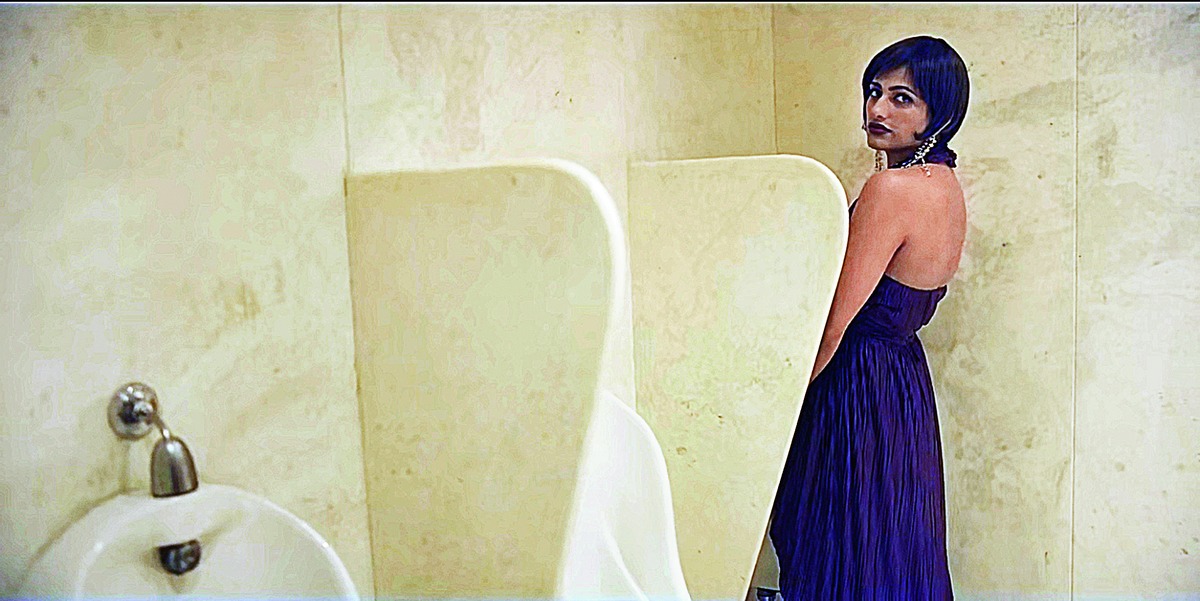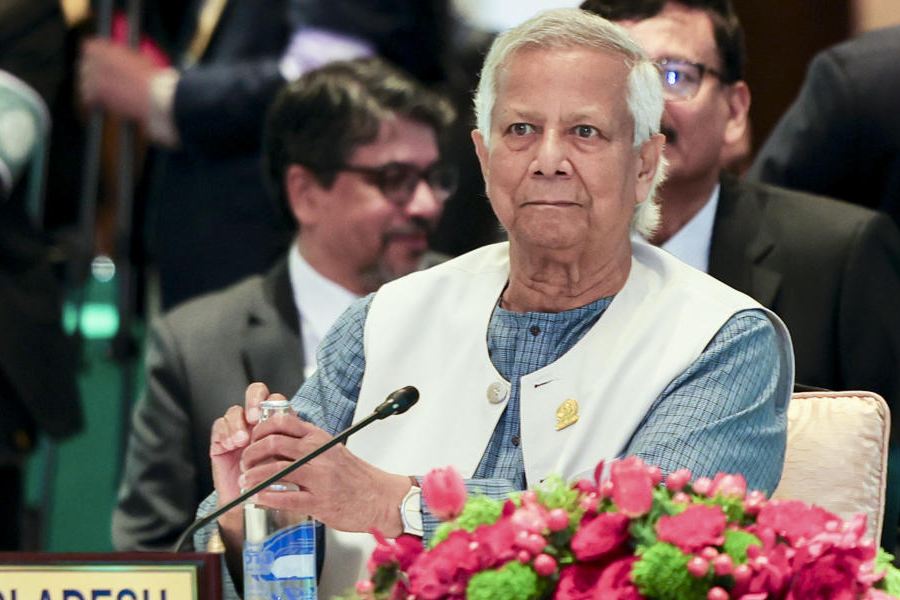
In the popular Web series, Sacred Games, the character Ganesh Gaitonde keeps saying to himself with unholy glee, "Kabhi kabhi lagta hai ki apun hi bhagwan hai." Meaning, many a time I get the feeling that I am God incarnate. Actor Nawazuddin Siddiqui, who plays grungy Gaitonde, repeats this line with relish every time he escapes death by the skin of his teeth, incredulous at his own good luck.
It would not be a stretch to say that India's Web entertainment content creators are basking in a similar sense of godliness, still somewhat disbelieving of their good fortune at having escaped the fetters of formula and prescribed morality that continue to constrict television and cinema.
At a time when some of the shows on television are Kundali Bhagya, a family drama; Paramavatar Shri Krishna, a mythological show; and Kaun Hai?, a horror show; cine-goers and their grandmothers are still recovering from "that" scene from Veere Di Wedding; senior directors such as Sanjay Leela Bhansali are still playing it safe with their one-dimensional heroes and villains, this is what is playing on the Web. DevDD, which is about a woman Devdas who loves to drink, smoke and have sex; TVF Pitchers, a tale of four friends who quit their jobs to start their own company; F.A.T.H.E.R.S, the chronicles of three fathers who struggle to catch up with the younger generation. On the Web, even Alok Nath can afford to shrug off his sanskaari colours and host an adult talk show - Sinskaari.
Actor Sumeet Vyas, who played Kareena Kapoor's fiancé in Veere Di Wedding, acted in the Web series, Official CEOgiri. Produced by Arre, it is about a CEO who suffers from a social anxiety disorder and how he manages, rather cannot manage, his personal life and company. According to Vyas, the spirit of a Web series is a lot like theatre. He says, "At least when I started, it was somewhat like that. A bunch of people trying to do something interesting."
Over the last couple of years, Web content out of India seems to have exploded with creativity. Platforms such as ALTBalaji (a subscription-based, video-on-demand platform owned by Ekta Kapoor), The Viral Fever or TVF and Arre operate in this space. These create content and also host them.
One of the shows on ALTBalaji - the platform is over a year old - is Bose: Dead/Alive. It is a biopic of Netaji Subhas Chandra Bose. In it, Bose is seen shaking hands with the Führer, voicing his differences with Gandhi, questioning the Congress. If the nation hasn't gone into paroxysms of rage and protest over it, that is because it is only on the Web. Rajkummar Rao is playing Bose. Some of the other shows on ALTBalaji are The Test Case, about a woman preparing to be the Indian Army's first ever female combat officer, and Romil and Jugal, a spin on Romeo-Juliet and about two gay men.
A lot of it, like Sacred Games, is gritty, the issues real, abuses free-flowing, no quivering butterflies or flower leaning on flower, there is sex where sex should be and love-making where it is called for, and greater evils than the mother-in-law.
Amit Golani, one of the core members of TVF, is also the director of one of the first Web series made in India. He says the whole idea started when he was in IIT Bombay. "Everyone around us would watch American soaps such as Seinfield, F.R.I.E.N.D.S, How I Met Your Mother but there was nothing on Indian television. Even when it came to the so-called youth channels, there was nothing save a couple of reality shows."
Nevertheless, Golani pitched a show to the TV channels first. But the void, which is so obvious and gaping to him, was apparently not evident to others in the traditional TV space. He says, "They were catering to a different age group altogether. Largely, the married female audience."
Golani's diagnosis one may not agree with wholly. After all, who says all old people and every married Indian woman wants to watch the same thing over and over again. But, at least, he attempted a diagnosis and bothered to act on it. The year 2014 marked the debut of Permanent Roommates, a series about a couple about to marry after being in a long-distance relationship for some years. Vyas plays Mikesh, the male lead. He says, "We were not prepared for the kind of reaction we got."
One advantage Web series have over television is creativity, smart content. (And that is where it trumps cinema, too, which is insulated by star quotient and format. And hence, out of this debate.) The other thing that has worked for Web series is smart length. Golani says, "Although the episodes were short because of budget constraints, they worked in our favour." Then there is its congenital omnipresence; next to no distribution cost and archival advantage. But above all, Web ke paas freedom hai.
In 2013, Golani wrote a script for a TV channel. It was a sketch on corruption. He says, "The company's legal team said we could not use the words 'India is corrupt'."
Pankaj Tripathi, who plays the role of Khanna Guruji in Sacred Games, says, "TV's reach despite the fall in viewership is undeniable but as an artiste I like that there is creative freedom on the Web. One can experiment without being scared of the censor board."
And yet, TV wasn't always so poor in ideas. Actress Renuka Shahane, who worked on the small screen in the 1990s and thereafter in the Hindi film industry, says, "TV content has suffered because we are into daily soaps now. There was no zabardasti chalana in our time."
Shahane has been quite active on Marathi television and made a comeback in Hindi, this year, with Khichdi on Star Plus. She continues, "It was not like everything on TV worked even then. But the stories were representative. On the whole, it was not a revenue-making enterprise. It was meant partly for social change. That is missing these days. Serials have become like advertising."
Shahane talks about the TV work culture then and now. "Till the time I was doing Kora Kagaz (1991), there were no channel representatives on the sets. Once the serial was commissioned, there would be no interference by the channel in the storyline or characters. There were no unplanned surprises like one day you are a good person and the next day a villain. One day you are dead, and the next day you come alive, as it happens these days."
Shalini Vatsa plays the stern and fearless Kanta Bai in Sacred Games. She talks about relatability as the USP of Web series. She says, "A woman like Kanta Bai, who makes alcohol and runs a theka, is part of a world. That world has not been explored in this way by television yet... Relatability makes a difference."
Vyas talks about his own experience when a TV channel approached him to make short videos. "They kept interfering in the content, so I abandoned the project... I don't have a grudge against marketing professionals and MBAs in media companies but they are not storytellers. It is very difficult to make them understand what works in a story... That is one big reason why we cannot do interesting stuff on television."
It is not that every TV production house is in denial about these differences. Some of the more successful ones, such as Balaji, recognise and enforce them. And that is why an Ekta Kapoor chooses to push Qayamat Ki Raat and Naagin to the TV viewer while reserving her alternate, smart content for ALTBalaji.
Of course, it is not as easy as that. There is economics too. Says Golani, "When the Indian woman wants to watch TV, she also needs to cook alongside. That is why the stories cannot be so complex that if she misses a scene, she can't follow the rest of it. Channels have worked it all out; they wouldn't want to jeopardise it. The only place where they experiment are in youth channels such as MTV and [the erstwhile] Channel V."
Does this mean TV is doomed? Far from it, if we go by data. According to a 2017 Ficci-KPMG Media and Entertainment report, TV experienced a steady growth of 8.5 per cent in 2016 and an 11 per cent growth in advertising revenues.
The first episode of Sacred Games begins with the camera following the giddy descent of a dog from the top floor of a multi-storey. It ends with a splat and the body of a spitz - lifeless, flattened, and the blood oozing out. Shahane would perhaps recognise it as Tuffy, her loyal follower from Hum Aapke Hai Koun..!, the iconic musical from the 1990s.
TV's decline might not be near but the autocratic regime of entertainment, as the Indian audience knows it, lies busted.











